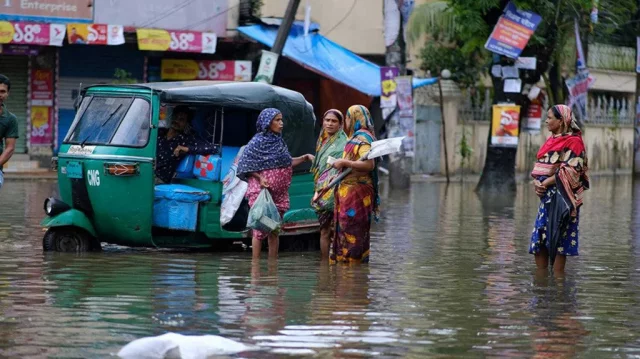A recent research has shown that Climate breakdown will put tens of millions of people in Bangladesh at heightened risk of cancer from contaminated well water.
Sea level rises, unpredictable flooding and extreme weather caused by the climate heating up will accelerate the release of dangerous levels of arsenic into the country’s drinking water, scientists have said.
Researchers say that the results of the research will be an intensification of a public health crisis already gripping the country, where millions have skin, bladder and lung cancers as a result of arsenic poisoning.
“Chronic arsenic poisoning from drinking water … is a real problem, not a theoretical exercise,” said the lead researcher, Dr Seth Frisbie, an emeritus professor of chemistry at Norwich University, in a recent presentation of the findings. “I once walked into a village where no one was over 30 years old.”
The origins of the arsenic water contamination crisis date back to the 1970s, when Bangladesh had one of the world’s highest rates of infant mortality due to polluted surface water.
Read also: Cop29 president adds women to climate summit committee after backlash
Recall that UN aid agencies and NGOs sponsored a programme of deep tube well boring to provide clean water for domestic use, crop irrigation and fish farming. The new wells reduced rates of child deaths by curtailing the spread of waterborne diseases, but by the 1990s it became clear that water drawn from sedimentary rocks beneath Bangladesh contained high levels of naturally occurring arsenic.
The first case of chronic arsenic poisoning from drinking well water was diagnosed in Bangladesh in 1993 and the World Health Organization would go on to describe it as the “largest mass poisoning of a population in history”.
“Arsenic is naturally occurring, and it’s washed down the sediments from the Himalayan uplift,” Frisbie said. “So all the sediments from the Ganges, Brahmaputra, Meghna, Irrawaddy [and] Mekong river basins are rich in naturally occurring arsenic.
“It wasn’t a problem when people drank surface water, because the surface water is in communication with the oxygen in the atmosphere and that makes the arsenic insoluble and removes it from the water. But the deep well water does not communicate as well with the oxygen in the atmosphere. And that’s why all of a sudden giving people access to these deep water wells has been a tremendous public health crisis.”
Story was adapted from the Guardian.
